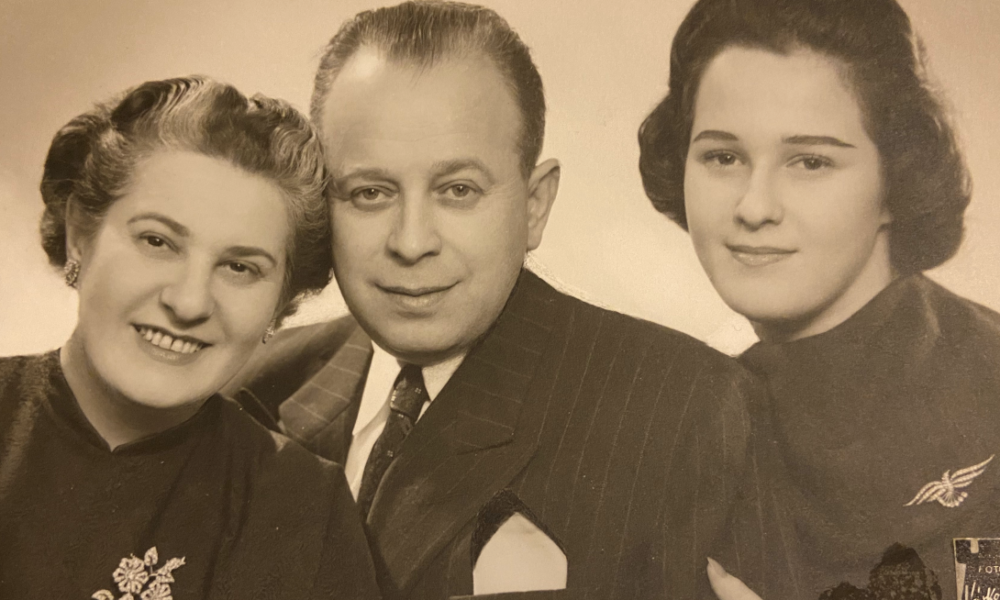Content warning: Mentions of antisemitism, genocide
On Jan. 26, members of the McGill community gathered in the atrium of the Macdonald Engineering Building to commemorate International Holocaust Remembrance Day. The event, hosted by Associate Provost (Equity and Academic Policies) Angela Campbell, was held in collaboration with Hillel McGill, the Rohr Chabad Jewish Student Centre, and McGill’s Department of Jewish Studies.
Jan. 27 is the United Nations–-designated International Holocaust Remembrance Day and marks the anniversary of when Soviet forces liberated prisoners from Auschwitz-Birkenau. McGill decided to hold the ceremony a day early as Jan. 27 fell on a Friday, the day of Shabbat.
The commemoration began with a speech from Campbell, who paid tribute to the six million Jewish victims of the Holocaust, and the five million other LGBTQIA+, Roma, and disabled victims of the Second World War.
“We must learn from the lesson of the past and relentlessly defend our democratic and humanist values,” Campbell said.
Campbell’s opening speech was followed by a discussion from Interim Principal and Vice-Chancellor Christopher Manfredi about rising antisemitism since the onset of the COVID-19 pandemic and the university’s measures to combat anti-Jewish hate and discrimination.
“The observance of this commemorative day will be an important way of raising awareness among our community about Jewish history for years to come, but there’s still much more work to be done,” Manfredi said.
Some of the speakers included city councillor Peter McQueen and the Consul General of Israel, Paul Hirschon. Following their remarks, Eta Yudin, the Quebec vice-president of the Center for Israel and Jewish Affairs, said that “we are moving further and further away from the living memory of the Holocaust.”
Campbell then welcomed Judith Nemes Black, a child victim of the Holocaust, to share her story. Born in Budapest, Hungary in 1941, Nemes Black recalled Hungary’s antisemitic laws and her family’s experience of the Holocaust.
Nemes Black and her mother were forced into hiding after being expelled from their apartment in July 1944. She was also made to wear a yellow star, a symbol used by the Nazis to target Jewish people. Her father, meanwhile, was forcibly moved between multiple eastern European concentration camps.
“In 1943, my father was sent to the Bor mines in Serbia, which was one of the worst labour camps in the Nazi German-occupied territory,” Nemes Black said in her speech. “In 1944, he was forced on a death march to Germany and was finally liberated in the terrible camp of Bergen-Belsen [….] Despite his thinness and his physical differences, I recognized him based on the pictures I [had] been shown.”
She described her family’s reunion in October 1945 as being “one of the most beautiful moments of my life.”
After Nemes Black’s testimony, Rabbi Shmuly Weiss, the rabbi of Chabad McGill and the university’s Jewish Chaplain, recited a prayer. McGill students lit candles in remembrance of victims and heroes of the Holocaust. The room then quieted for a minute of silence, which was broken by a recitation of the poems “The Butterfly” by Pavel Friedman and “Never Shall I Forget” by Elie Wiesel.
In an interview with The McGill Tribune after the event, Rabbi Shmuly stressed the importance of Holocaust education and fighting misinformation, especially in light of a recent survey that found 22 per cent of Canadian millennials have never heard of or were unsure if they had heard of the Holocaust.
“Even if there were no antisemitism in 2023, it would still be incumbent upon everybody to study about the Holocaust to make sure things like this don’t happen ever again to anybody,” Shmuly said. “The fact that Canadian citizens today have not heard about it is very disturbing.”
The event closed with a prayer by Rabbi Shmuly and Hillel McGill President Sam Abemoyer, followed by a speech from Yael Halevi-Wise, associate professor in McGill’s Departments of Jewish Studies and English.
“In a way, we are all Holocaust survivors,” Halevi-Wise said in her closing remarks. “Whether as first hand victims, witnesses, spectators, or traumatized remnants, we are all survivors of this horror because it remains a collective responsibility to cry ‘Never again; never again anywhere’.”









